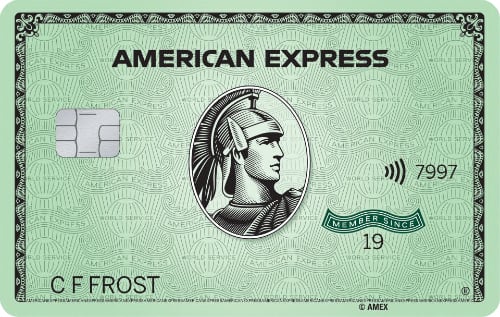
Between our roller coaster job market and saving for a down payment while battling inflation, buying a house can feel unattainable for many of us. Add to that our anxiety over good or bad credit scores, and it may feel like you’ll never own a home.
But contrary to popular belief: You don’t need a perfect credit score to buy a house.
Now we’re not saying a good credit score isn’t a good thing to have. A good credit score can help you qualify for better mortgage rates and terms. But there is no need to despair if your credit score is less than perfect. There are options you can exercise to buy a home.
In this article, we’ll explain what credit score you need to buy a house and explore some of the home buying options available to borrowers with less-than-perfect credit.
What Is Your Credit Score?
Your credit score is a three-digit number lenders use to assess your creditworthiness. When you take out a loan, the number signals to lenders how likely you are to repay the loan on time.
Credit scores can range from 350 – 800. The average credit score in the U.S. falls somewhere around 714.[1]
Most credit scores are calculated using information from the three major credit bureaus – Equifax®, Experian™ and TransUnion®. The credit bureaus collect data on your credit history (including everything from payments to bankruptcies) and use the information to calculate your FICO® Score.
Your credit score is an essential component that helps determine whether a lender will approve you for a loan and at what interest rate.
If you have a credit score of 720 or higher, you’re considered a “prime borrower,” and a lender will likely offer you the best mortgage rates and terms. Borrowers with credit scores below 620 are considered “subprime borrowers” and usually find it more challenging to qualify for a loan.
How do I check my credit score?
Wondering what your credit score is? You can usually check your credit score through your bank or credit card company for free. If you want to check your credit score more frequently, you can sign up for a credit monitoring service, like Credit Karma or myFICO®.
What Credit Score Do You Need To Buy a House?
There is no one-size-fits-all answer to this question. Credit score requirements can vary from lender to lender – and even from one loan to the next.
For example, the credit score requirements for government-backed home loans are lower than they are for conventional mortgages. The federal government backs these loans to help home buyers with less-than-perfect credit qualify for financing.
In general, most mortgages require credit scores in the low- to mid-600s. But If you want to qualify for the best mortgage rates and terms, your credit score will need to be in the good (620 – 669), very good (670 – 739) or excellent credit range (740+).
Of course, final determinations about credit scores are always left to lenders, and credit score requirements can vary depending on the type of loan you apply for. Here are the credit score requirements for some popular home loans:
Conventional loans
Minimum credit score: 620
Conventional mortgages conform to government standards set by Fannie Mae and Freddie Mac, but mortgage agreements are strictly between borrowers and lenders.
Conventional loans typically require a credit score of 620 or higher.[1] Some lenders may require a credit score of at least 640 for certain loans.
FHA loans
Minimum credit score: 580 with 3.5% down or 500 with 10% down
The Federal Housing Administration insures FHA loans. The loans help first-time home buyers and buyers with less-than-perfect credit qualify for financing.
The credit score requirements for FHA loans are lower than conventional mortgages because the federal government promises to repay lenders if a borrower defaults on their loan. However, borrowers must pay mortgage insurance premiums (MIPs), which will increase their monthly mortgage payments.
To qualify for an FHA loan with a 3.5% down payment, you need a credit score of 580 or higher. With a 10% down payment, you can qualify for an FHA loan with a credit score as low as 500.
VA loans
Minimum credit score: The VA has no minimum credit score requirement, but a lender may require a credit score of 580 or higher.
VA loans are available to qualified veterans, active-duty service members and surviving spouses. The loans are backed by the Department of Veterans Affairs but offered through private lenders. VA loans don’t require mortgage insurance, but they have an upfront funding fee that can be folded into the loan or paid at closing.
USDA loans
Minimum credit score: The USDA has no minimum credit score requirement, but a lender may require a credit score of 640 or higher.
If you want to buy a home in a rural or suburban area, you may be eligible for a USDA loan. The loans are backed by the U.S. Department of Agriculture and help low- to moderate-income buyers with limited credit qualify for financing.
USDA loans also have income limits based on the county you’re buying in. You can check the area’s income requirements before you apply.
Jumbo/Nonconforming loans
Minimum credit score: 680 or higher
You’ll need a jumbo loan or nonconforming loan to purchase a home that is more expensive than the loan limits set by the Federal Housing Finance Agency. Because these loans are treated as higher-risk loans, their credit score requirements are typically higher. Most lenders prefer a credit score of 680 or higher.
Again, credit score requirements will vary depending on the lender, so be sure to check before you apply.
How Your Credit Score Can Impact Your Mortgage
While the required credit score to buy a house will vary by loan, the impact of your credit score on your mortgage terms is universal. Here’s a look at how your credit score can impact your mortgage:
Credit score and interest rates
Your credit score is one of the most significant factors that determines your interest rate. The higher your credit score, the lower your interest rate will probably be. And the lower your credit score, the higher your interest rate will probably be.
Let’s say you’re applying for a $250,000 mortgage with a 30-year term. With a credit score of 780, you could qualify for a 4.25% interest rate. If your credit score is 620, your interest rate could be 5.25%.
That 1% difference in interest could add up to thousands of dollars in additional interest charges over the length of the loan.
Credit score and PMI
If you put less than 20% down on a conventional loan, you’ll pay private mortgage insurance (PMI). PMI is insurance that protects lenders in case borrowers default on their loans.
One of the factors that determine your PMI percentage is your credit score. PMI can range from 0.25% – 1.5% of a conventional loan’s value, and your credit score will determine the percentage of PMI you will pay. Borrowers with lower credit scores will typically pay higher PMI rates.
Other Non-Credit Score Considerations
Your credit score isn’t the only variable that can affect your ability to qualify for a mortgage. Other factors include:
Your debt-to-income (DTI) ratio
Your debt-to-income (DTI) ratio measures how much debt you have relative to your gross monthly income. Lenders calculate your DTI ratio to determine whether your income can cover your fixed, recurring debts and monthly mortgage payments.
The higher your DTI ratio, the more debt you have relative to your income. And the more debt you have, the less confident lenders will feel that you can comfortably afford a mortgage. Lenders typically prefer a DTI ratio of 36% or less.
Your loan-to-value (LTV) ratio
When you buy a home, your loan-to-value (LTV) ratio is your total loan amount divided by the home’s appraised value.
If you bought a $250,000 home and put 20% down, your loan would be $200,000, and your down payment would be $50,000. Your LTV ratio would be 80% ($200,000 / $250,000 = 0.8, or 80%).
The lower your LTV ratio, the less of a risk you are to lenders. And the less of a risk you are, the more likely you are to get a lower interest rate. Even if your credit score is at the lower end, putting more money down may help you qualify for a lower interest rate.
Your income and assets
Are you employed? Do you have a steady income? What assets do you have? Lenders will consider all these factors while reviewing your mortgage application.
They’ll also look at your employment and credit history to better gauge your financial stability and creditworthiness.
How Can You Improve Your Credit Score?
If your credit score isn’t where you want it to be, don’t worry. There are steps you can take to improve your credit score, including:
- Checking your credit report: The first step is to check your credit report for errors. You can check it once a year at AnnualCreditReport.com for free. If you find any errors, dispute them with the credit bureau. An error may be standing between you and a better credit score.
- Paying your bills on time and in full: Your payment history accounts for a significant portion of your credit score. Pay your bills on time and in full if you want to improve your credit score.
- Paying down your existing debt: Another factor that figures into your credit score calculation is your credit utilization ratio. It’s the amount of credit you use relative to your credit limit. Ideally, you should keep your credit utilization ratio below 30%. If you have credit card debt, try to pay it down or off as soon as possible.
- Build your credit history: If you have a thin credit history, one of the best things you can do is to start building your credit. Ironically, one way to start building your credit history is by getting a credit card. But you’ll need to use the card responsibly and keep our advice about your credit utilization ratio in mind.
Find a co-signer or co-borrower
If you’re having trouble qualifying for a mortgage, you should consider recruiting a co-signer. Having a friend or family member co-sign a mortgage can help improve your chances of approval – assuming the co-signer has excellent credit.
Just keep in mind that the co-signer is equally responsible for making sure the loan is repaid, so it’s not a decision either of you should take lightly.
If you’re borrowing with someone else or taking out a joint mortgage, lenders will look at an average of both of your credit scores.
You Can Still Score a Mortgage
Wouldn’t it be great if we all had excellent credit scores? But even if your credit score isn’t perfect, you can still score a mortgage. Talk to a mortgage lender to see what options are available to you. With some work, you can improve your credit score. And you can research different mortgage loan products to help you purchase the house you want.
-
Experian™. “What Is the Average Credit Score in the U.S.?” Retrieved November 2022 from https://www.experian.com/blogs/ask-experian/what-is-the-average-credit-score-in-the-u-s/
-
Fannie Mae. “B3-6-02, Debt-to-Income Ratios (05/04/2022).” Retrieved November 2022 from https://selling-guide.fanniemae.com/Selling-Guide/Origination-thru-Closing/Subpart-B3-Underwriting-Borrowers/Chapter-B3-6-Liability-Assessment/1032992131/B3-6-02-Debt-to-Income-Ratios-02-05-2020.htm



